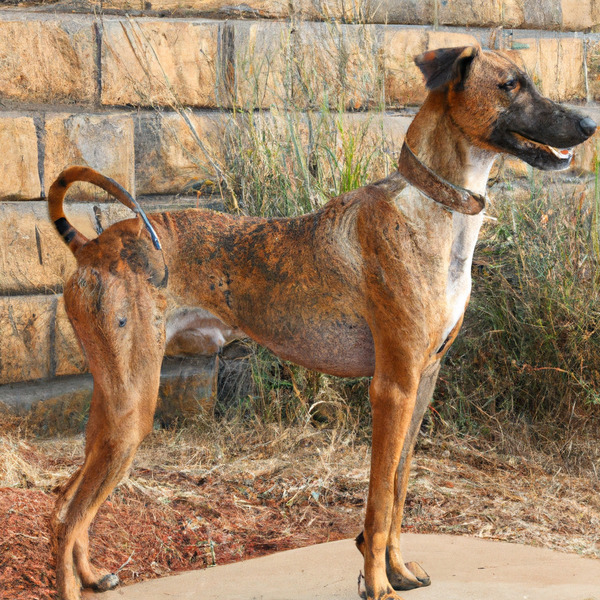
Africanis Breed Information & Characteristics
Weight Gain Potential
Do Africaniss get fat easily?
The Africanis is a dog breed that has a low to average risk for obesity. This means that they are less likely to gain weight than some breeds, but it is still important to monitor their food intake and ensure they get enough exercise to maintain a healthy weight and overall well-being.
Hypoallergenic
Are Africaniss Hypoallergenic?
Unfortunately, the Africanis is not hypoallergenic, making it not a good choice for a dog lover who suffers from pet allergies.
Temperament
What is an Africanis personality? What are Africanis dogs best known for?
Friendly
Territorial
Watchful
Independent
Trainable
Protective
Affectionate
Obedient
Shedding Level
Are Africaniss heavy shedders? How Much Does an Africanis Shed?
Africanis dogs are low shedders. The coat sheds an average amount and doesn't require much care.
Watchdog Ability
What is the watchdog ability of an Africanis dog?
Africaniss are very good watchdogs. They are a vocal breed, and are wary of outsiders, so if someone approaches your home or aims to intrude, the Africanis is going to make sure everyone knows about it.
Origin
Where do Africaniss come from?
Africa
Ancestry
What are Africaniss descended from?
Unknown Hound and Pariah-type Dogs
Date of Birth
When were Africaniss first bred? How old is the Africanis breed?
Ancient Times
Breed Group
What Breed Group is an Africanis?
Hound
Eye Color Possibilites
What color are Africanis eyes?
Brown
Amber
Nose Color Possibilites
What color can Africanis nose be naturally?
Black
Coat Color Possibilites
What color can Africanis coat be naturally?
Black
Gray
Brown
Red
Cream
Isabella
Fawn
Silver
White
Pied
Sable
Brindle
Coat Length
How long is an Africaniss coat?
Africaniss are known for their short coat.
Coat Density
How Dense Is The Africanis Coat?
Coat Texture
What is the texture of the hair of an Africanis?
Straight
Litter Size
How many puppies can an Africanis have in a litter? How many puppies can an Africanis have in her first litter?
An Africanis can have a litter of 10-12 puppies on average. However, it's worth noting that the size of the litters can vary greatly. Factors that can influence litter size include the health of the mother, breeding history, and genetics.
Adaptability
Africanis dogs generally adapt well to changes in lifestyle and different living environments, but it is considered as an average level of adaptability compared to other breeds.
Health Issues
Do Africaniss have a lot of health problems?
The Africanis is a breed of dog that is known to have a higher frequency of health issues compared to other breeds. These issues can range from minor to serious, and regular check-ups with a veterinarian are essential in order to identify and address any potential problems as early as possible.
Major Concerns
What are the major health concerns to be aware of when owning an Africanis?
Dermoid Sinus
Minor Concerns
What are the less significant issues to keep in mind when it comes to Africaniss?
Usually Very Healthy
Occasional Tests
What are the occasional tests recommended for Africanis breed?
Eye Examination
X-rays or other radiographic imaging
Myelography (Dye And X-Ray to Assess The Spinal Cord)
Energy
Do Africaniss have a lot of energy?
Africaniss are known for their high energy levels, so if you're looking for a more low-key dog, this breed may not be the best choice.
Social Needs
Do Africaniss need socialization? How social are Africaniss?
Africanis have above average social needs compared to other breeds.They thrive in environments where they have a lot of interaction with humans and other dogs.
Exercise Needed
How much exercise should Africaniss get?
The Africanis dog needs significant physical activity to maintain a healthy lifestyle. They are also well-suited for those who lead an active lifestyle and enjoy activities such as running, hiking, or other outdoor pursuits.
Sleeping Need
How much sleep should an Africanis have? Do Africaniss sleep a lot?
Africaniss dogs are tend to sleep less than other breeds, but they still require adequate sleep to maintain good health.
Drooling Tendency
Does an Africanis drool a lot?
The Africanis is a breed of dog that is characterized by its minimal drooling, making it an ideal choice for people who dislike drool marks on their clothing.
Tendency to Bark
How much does it bark?
Africaniss tend to bark moderately, they bark when necessary, such as to alert their owner or to communicate something. They may also bark due to certain triggers like fear, alarm, boredom, greeting, separation anxiety and compulsive barking.
Territorial
Do Africaniss exhibit aggressive behavior to safeguard their home and territory? Do they possess a natural tendency to guard?
These dogs are known for their strong territorial instinct and protective nature. They will fiercely defend their territory and are highly alert and vigilant against any perceived threat to their home and family.
Mouthiness
Are Africaniss mouthy?
Roaming urge
What is the likelihood of an Africanis running away? Do they have a tendency to explore or wander frequently?
Prey Drive
Do Africanis dogs have a high prey drive?
Past times
What do Africaniss enjoy doing? How do I keep my Africanis busy?
Walk, Run, Walking, Training, Chase, walk, Go to Park, Going on hikes, Chase, Fetch, Frisbee, Play keep away, Long walks, Fet, Tagging, Chasing, Teething, Boat ride, Bath time, Brushing, Catch treats, Jogging, Playing Ball
Activity Level
What is the energy level of an Africanis? How much energy does an Africanis have?
Africaniss are medium-energy dogs and typically enjoy socializing and playing casual or even sustained games of chase with other dogs. They may also have occasional periods of barking or racing around the house.
Tolerance of being left alone
Walks per Week
How far should an Africanis walk each week? How many miles should an Africanis walk every week?
There's really no limit to how far you walk your dog as long as they're comfortable. For Africanis, it's at least 16 miles / week. Just remember to build distance and stamina gradually over time.
Activity per Day
How much an Africanis should exercise a day? How much activity does an Africanis need?
In general most Africaniss usually need at least 90 minutes of exercise daily. This can be spread across the day and include all sorts of high-energy activities, like walking, running and playing.
Grooming
What level of grooming should be provided for an Africanis?
The Africanis is a breed of dog that is known for its low grooming needs.
Brushing Frequency
How often should you brush an Africanis?
Africanis should be brushed at least once a week. Of course you can give them more frequent brushes if you find that they are still shedding a lot
Brushing Tools
What are the most commonly used brushing tools for Africaniss?
Slicker Brush
Nail Clipper
Cups
How many cups of food does an Africanis eat?
For an average 55-100 pound (25 - 45 kg) Africanis feed 2.5 cups daily. But, keep in mind, the amount you feed is going to be dependent on the quality of the food you are feeding.
Daily Cost
How Much Does an Africanis Cost Daily?
The average cost of an Africanis is somewhere $2.10 - $2.70 per day.
Monthly Cost
How Much Does an Africanis Cost Per Month?
The average per month expenses of an Africanis is between $48 - $63. This makes an average of $576 - $756 per year. It will be on the higher side when the dog is still small because it will need more frequent visits to the vet, shots.
Intelligence
How intelligent is an Africanis?
The Africanis breed is considered very intelligent and easy to train.
Sensitivity Level
How sensitive is an Africanis dog?
Africanis dogs have average emotions and are adaptable to different situations, not requiring extra care like sensitive breeds do.
Affection Dependance
Are Africanis dogs affectionate?
Apartment Friendly
Do Africanis do well in apartments? Are Africaniss good indoor dogs?
It's not recommended to keep the Africanis in an apartment, but this breed make good apartment dogs as long as they get to spend a good amount of time outside of the apartment. Africaniss living in apartments will need plenty of physical exercise and stimulation throughout the day to remain happy and well-behaved.
Child Friendly
Are Africaniss good with kids? Are Africaniss good around children?
Africaniss are kid-friendly dogs. They are good with children and excellent dogs with children if they are socialized and trained at a young age.
Senior-friendly
Are Africaniss good for elderly?
Cat Friendly
Are Africaniss good with cats? How friendly Africaniss are toward cats?
Africaniss are one of the best dogs for cats. They're accept cats readily as part of the family. However, this dog breed should be trained to not chase after the kitty early on
Dog Friendly
Do Africanis dogs get along with other dogs? Are Africaniss OK with other dogs?
Africaniss are average friendly towards other dogs. If they are raised with other dogs, they are likely to get along with them. And, if they are socialized properly from a young age, they will usually be great with other dogs.
Pet friendly
How do Africanis dogs interact with other pets? Are they considered pet-friendly?
Stranger Friendly
Are Africaniss friendly with strangers?
Africaniss are average friendly around strangers. They can be wary around strangers and a little standoffish. Early socialisation is key.
Playfulness
Do Africaniss like to play? Are Africaniss playful?
The Africanis is a playful dog. So, no matter how busy the day may get, the best thing you can do for your Africanis is to make time each day to play. It can be as little as 15-20 minutes, and it will mean the world to them.
Trainability
Are Africanis easily trained?
Africanis dogs are known for their ease of training and ability to learn quickly, making them a popular choice for pet owners and trainers alike.
Compare Africanis with other breeds
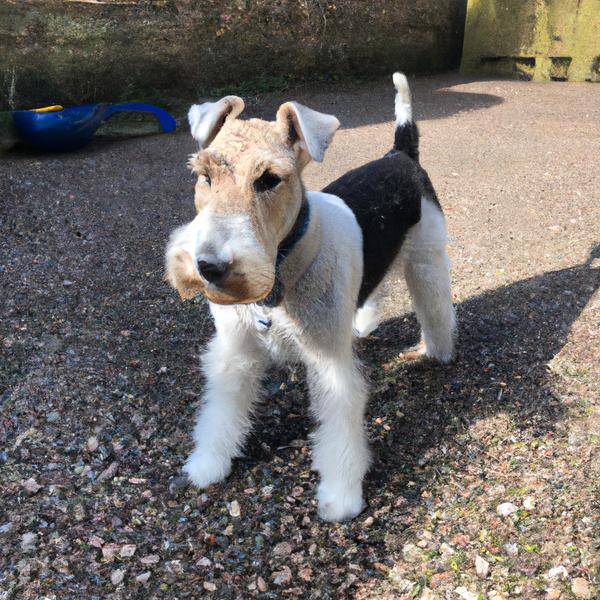
Mini Scottish Fox Terrier
Africanis vs Mini Scottish Fox Terrier
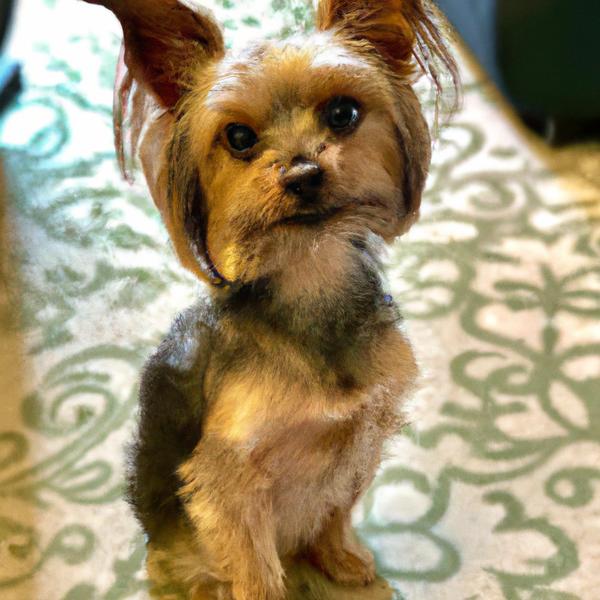
Mini Torkie
Africanis vs Mini Torkie
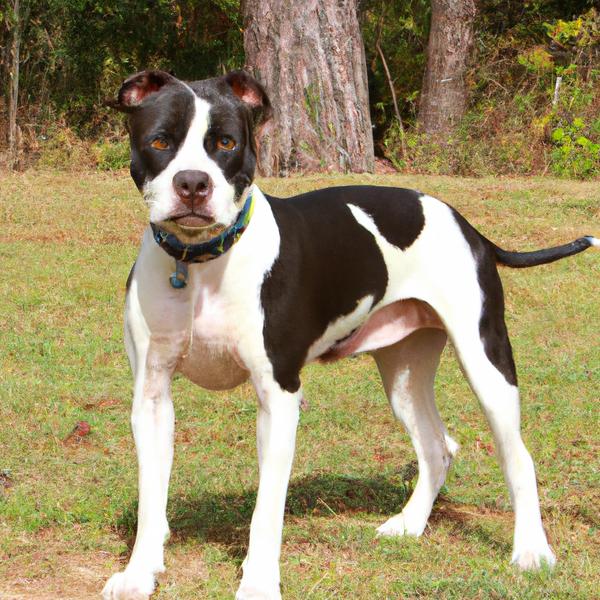
Springer Pit
Africanis vs Springer Pit
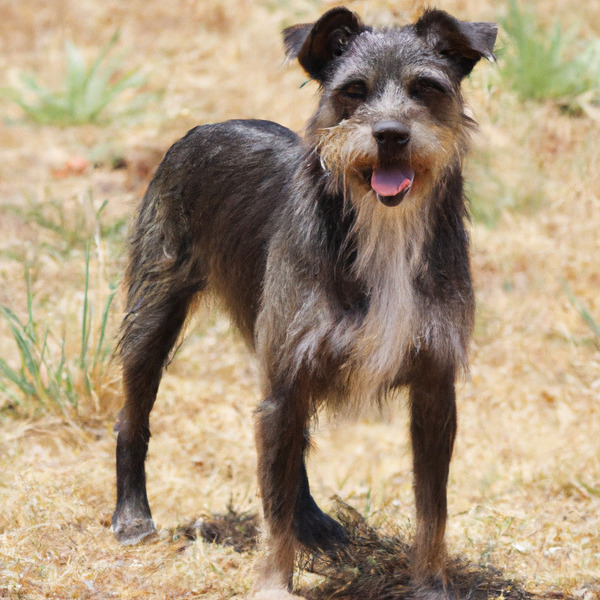
Tenterfield Terrier
Africanis vs Tenterfield Terrier
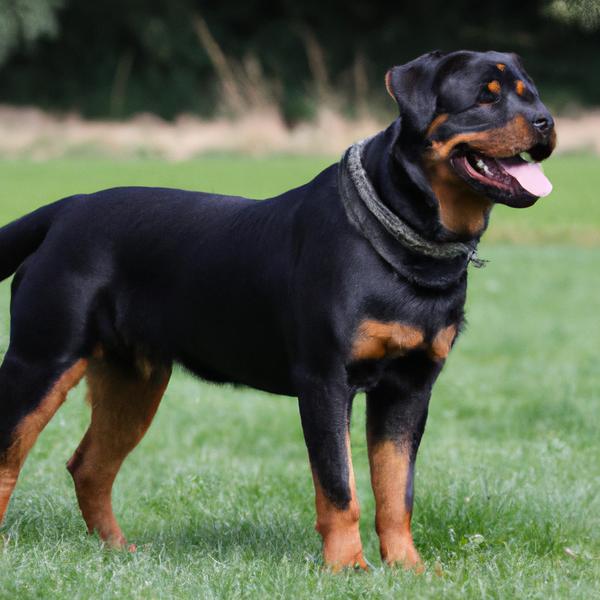
New Rottland
Africanis vs New Rottland
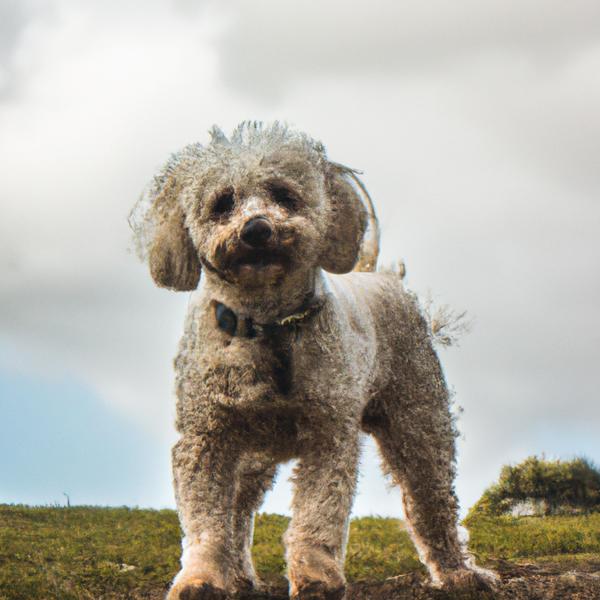
Skypoo
Africanis vs Skypoo
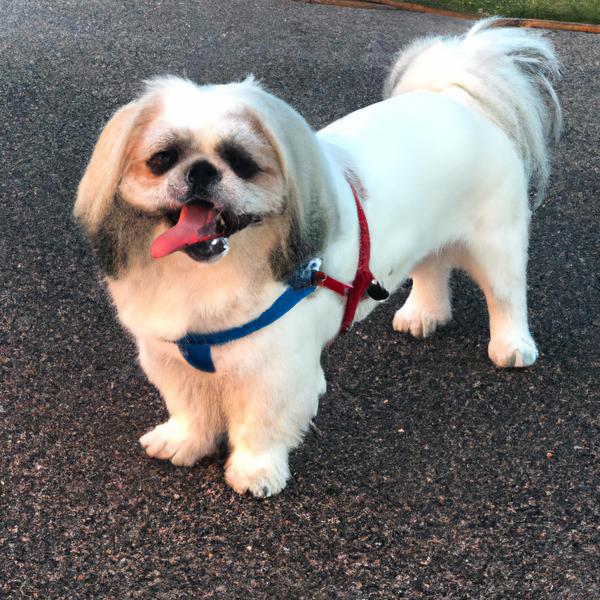
Silkytie
Africanis vs Silkytie
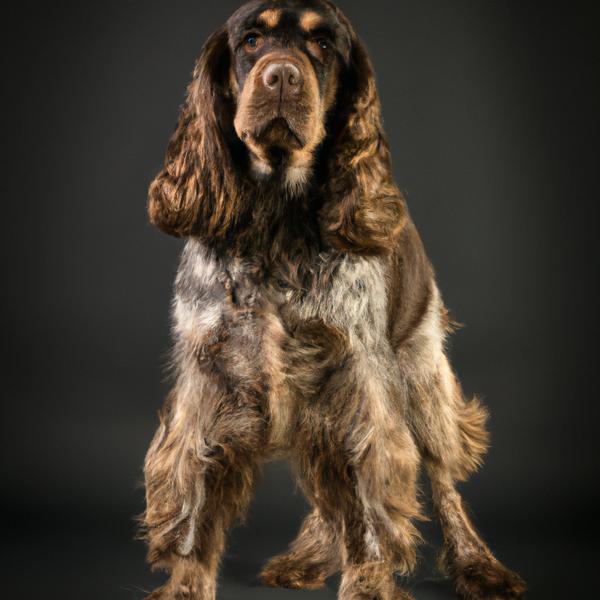
Cluminger Spaniel
Africanis vs Cluminger Spaniel
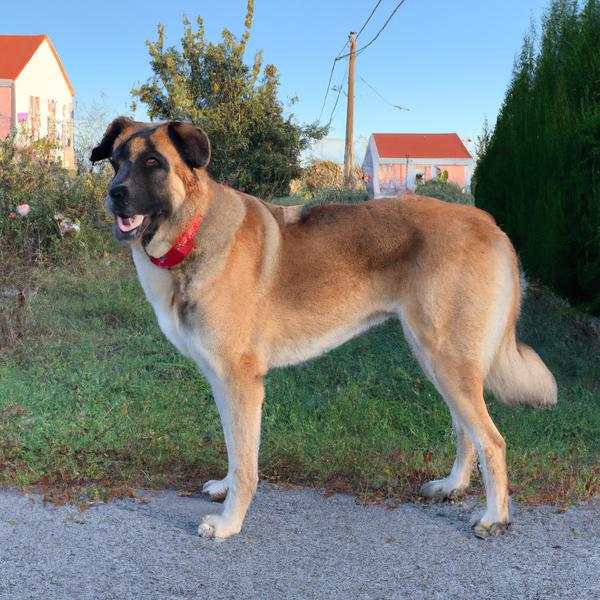
German Anatolian Shepherd
Africanis vs German Anatolian Shepherd
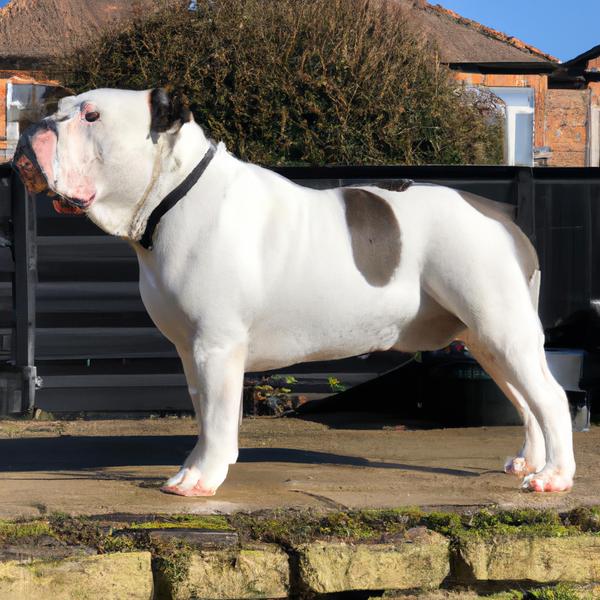
Taylor's Bulldane
Africanis vs Taylor's Bulldane

Labrador Retriever
Africanis vs Labrador Retriever
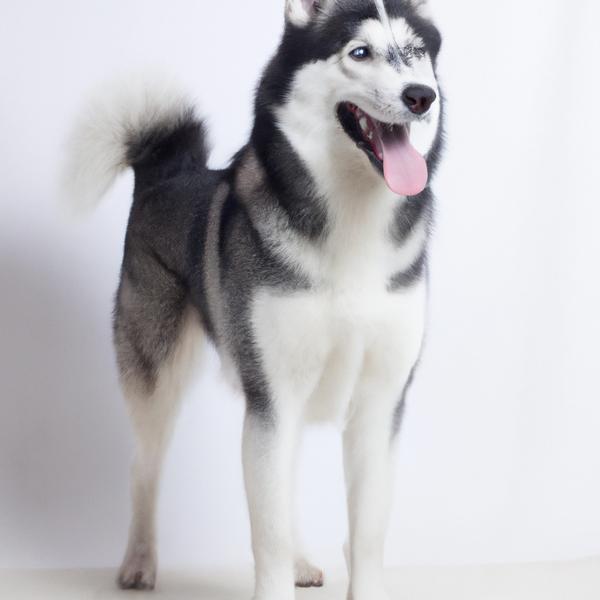
Husker
Africanis vs Husker